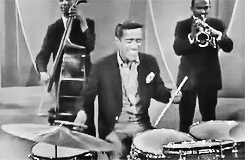Music theory students, and especially majors, have a love hate relationship with their classes. It takes a lot of resolve to get through four semesters of theory classes. If you don't have the passion, you won't outlast the ear training and voice leading assignments. If you are a music student you have probably found yourself thinking one of these things at some point or another on your journey through theory.
1. Ear training is torture.
After fifteen minutes you lose all sense of relativity. You don’t know up from down or consonant from dissonant anymore. The synthesized excerpts in the ear training software grate on your ears after a while.
2. Running out of replays on the ear training quizzes always comes as a surprise.
You lose count of how many times you have listened to the melodic excerpt for dictation and accidentally use your last one. Eventually you get desperate and start recording the last play on your phone so you can keep listening.
3. You resent the percussionist when you have to sight read rhythms.
The drummer really shows everyone up, and worse, has the nerve to complain about the rest of you slowing down the tempo.
4. And you resent the chorus girls when you sight sing in class.
They complain too much about the collective deviation from pitch. Does it really matter when everyone is flat? We aren't putting this on the stage. You don't need an absolute starting pitch.
5. Anyone with perfect pitch can get out.
That goes for anyone with relative pitch too. There is no need to make everyone else feel inadequate.
6. You get tired of analyzing old dead guy music.
7. But when you have to analyze something familiar you hate hate it even more.
It takes out all the fun. You won't be able to listen to that song without remembering the agony of identifying the chord progression.
8. You get all the counterpoint rules drilled into you, just to break them later.
When you analyze music in its natural habitat outside of the theory textbook, none of the rules apply anymore. No composer follows the rules of counterpoint in real life. They are more like guidelines anyway.
9. Part writing assignments are impossible to get right.
You start over five times trying to write a soprano line that won’t move in parallel fifths with the bass only to end up with incomplete chords and unresolved leading tones. There is no right answer.
10. There really has to be a better way to name chords.
When you regularly spend five minutes clearing up whether you are talking about the six chord in the context of figured bass or scale degrees, you start to question the system. And using terms like sub-mediant is just a mouthful.
11. The textbook is too dense to comprehend.
I get that music theory is a complex subject, but the authors of music theory textbooks seem to take pleasure from writing such convoluted sentences that you become more confused after you read.
12. The terminology is ridiculously elitist.
Terms like “perfect authentic cadence” and “tetrachordal descent” are just so much stuffier than they need to be. There is no need to say anacrusis when everyone else in the world calls it a pick up.
13. Second level analysis is too subjective to be graded.
Was your professor there when Bach composed that piece? Nope. How does he know if that chord functions as a tonic expansion or a predominant? There is no right answer. When Bach comes back from the dead, he can tell me that I'm wrong.





























